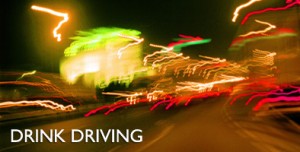Hard Core Still Risk Drink Driving
December 11, 2012 by admin
Filed under Employment, Motoring Law
In the UK drink driving or attempting to drive whilst above the legal limit or unfit through drink carries a maximum penalty of six months’ imprisonment, a fine of up to £5,000 and a minimum 12 months’ disqualification.
For a second offence committed within ten years of conviction, the minimum ban is three years. Being in charge of a vehicle whilst over the legal limit or unfit through drink could result in three months’ imprisonment plus a fine of up to £2,500 and a driving ban.
It is an offence to refuse to provide a specimen of breath, blood or urine for analysis. The penalties for refusing are equivalent to those applied where a positive specimen is given; a maximum six months’ imprisonment, a fine of up to £5000 and a minimum 12 months’ driving ban.
Causing death by careless driving when under the influence of drink or drugs carries a maximum penalty of 14 years in prison, a minimum two-year driving ban and a requirement to pass an extended driving test before the offender is able to drive legally again.
The offence of driving whilst under the influence of alcohol is one to which there is no defence, as such (although defences such as duress or automatism, which are not specific to the offence of driving with excess alcohol, may apply in certain rare circumstances). However, it may be possible to argue that special reasons exist which are such that you should not be disqualified from driving despite having committed the offence.
Reasons which have been held to amount to special reasons include:
- shortness of distance driven
- unintentional commission of the offence (i.e. laced drinks)
- emergencies
Research revealed that drink driving was more likely to happen when people were young, as is the case today, with more drivers aged between 20 and 24 failing breath tests than any other age group.
It also showed that social norms and attitudes to drink-driving have changed over time. The AA said that 30 years ago many drivers viewed drink driving as an acceptable risk.
In 1982, nearly 6,000 people died on the roads, with 1,550 (or 26%) involved in reported drink-drive accidents. In 2011, 1,901 died, with only 280 (15%) involving drink drive accidents.
Breath Readings.
The legal drink driving limit is 35 milligrams per 100 millilitres of breath. If your breath reading is under 50 milligrams then you will be offered a blood or urine test to double check the breath reading. If your blood reading comes out above the drink driving legal limit of 80 you will be charged with drink/drunk driving.
Some defences to drink driving.
- Showing that you were not driving.
- Denying that you were driving on a road or in a public place.
- Arguing that you consumed the alcohol that took you over the drunk driving limit after you stopped driving (otherwise known as a hip flask defence).
- Denying that you were over the limit and arguing that the police evidence is unreliable.



